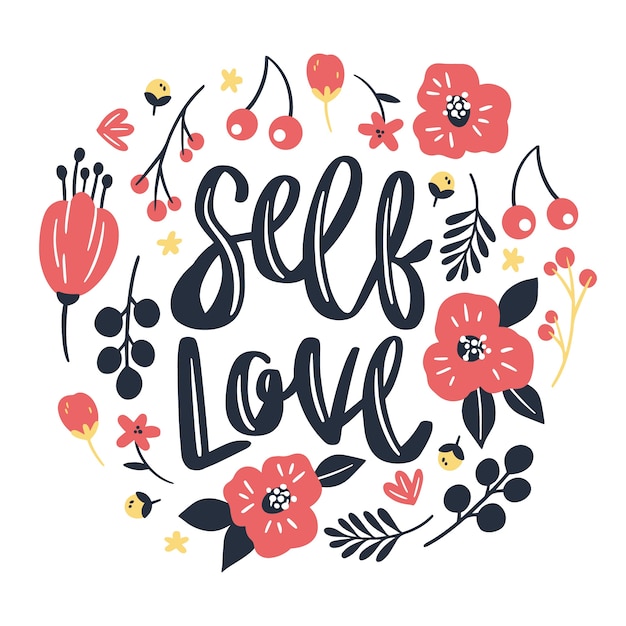All Categories
Featured
Table of Contents
- – Introduction
- – The Power of Meditation
- – Mindfulness for Self-Worth
- – The Impact on Personal Growth
- – How to Incorporate Meditation and Mindfulness
- – Building Confidence: Kristen Brown's Approach
- – Relevant Links:
- – Quote about Self-Worth and Confidence
- – Facts and Statistics
- – Frequently Asked Questions
- – How can meditation boost self-worth?
- – How does mindfulness contribute to building c...
- – Elevate Your Spirit: Strengthening Self Worth ...
- – The Importance of Self Worth
- – The Power of Confidence
- – Practical Strategies for Strengthening Self W...
- – FAQ
- – How can I improve my self worth and confidence?
- – Why is self worth important?
- – The Influence of Self-Worth on Personal Relati...
- – Building Healthy Relationships with Strong Se...
- – The Impact of Low Self-Worth on Personal Rela...
- – The Self-Worth and Personal Relationship Cycle
- – Positive Cycle: Healthy Self-Worth and Fulfil...
- – Negative Cycle: Low Self-Worth and Unhealthy ...
- – Building Self-Worth for Healthier Personal Rel...
- – 1. Practicing Self-Compassion
- – 2. Setting Boundaries
- – 3. Seeking Support
- – 4. Practicing Self-Care
- – Frequently Asked Questions
- – How does self-worth affect personal relations...
- – How can I improve my self-worth for healthier...
- – Confidence: Elevate Your Self Worth and Confi...
Introduction
In today's fast-paced and competitive world, building confidence has become more important than ever. With various external pressures and internal doubts, many individuals struggle with self-worth and confidence issues. However, there are effective techniques that can help in addressing these concerns and promoting personal growth and empowerment. One such approach is through the practice of meditation and mindfulness.
The Power of Meditation
Meditation is a technique that has been practiced for centuries and is known for its numerous benefits to mental, emotional, and physical well-being. Through regular meditation, individuals can learn to quiet their minds, tune into their inner selves, and cultivate a sense of peace and clarity.
One of the key ways meditation contributes to building confidence is by enhancing self-awareness. By sitting in stillness and observing their thoughts and emotions, individuals become more attuned to their internal dialogue and patterns of self-doubt. This increased self-awareness allows them to challenge and reframe negative thoughts, fostering a more positive and confident mindset.
Mindfulness for Self-Worth
In addition to meditation, the practice of mindfulness plays a crucial role in developing self-worth and confidence. Mindfulness involves being fully present in the current moment, without judgment or attachment to thoughts or emotions.
Through mindfulness, individuals learn to observe their thoughts and emotions non-judgmentally, developing a sense of compassion and self-acceptance. This practice helps to cultivate a greater understanding and appreciation for one's own worth and uniqueness, leading to increased self-confidence.
The Impact on Personal Growth
Building confidence through meditation and mindfulness has a profound impact on personal growth. As individuals become more self-aware and develop a positive mindset, they are better able to identify and pursue their passions and goals. With increased self-worth and confidence, they persist in the face of challenges and setbacks, and are more likely to achieve their desired outcomes.
Moreover, meditation and mindfulness practices provide individuals with tools to manage stress and anxiety, allowing them to navigate life's uncertainties with greater resilience. This leads to an overall improvement in well-being and a sense of empowerment.
How to Incorporate Meditation and Mindfulness
There are various ways to incorporate meditation and mindfulness into daily life to enhance self-worth and confidence:
- Start with short daily meditation sessions, gradually increasing the duration over time.
- Practice mindfulness during daily activities, such as eating, walking, or engaging in conversations.
- Attend meditation or mindfulness workshops or classes to learn and deepen your practice.
- Utilize guided meditation apps or online resources to support your practice.
By consistently engaging in these practices, individuals can experience the transformative benefits of meditation and mindfulness on their self-worth and confidence.
Building Confidence: Kristen Brown's Approach
Kristen Brown, a renowned author, speaker, and coach, specializes in empowering individuals to develop their self-worth and confidence. Her unique approach combines evidence-based techniques like meditation and mindfulness with personalized coaching and guidance.
Through her coaching programs, Kristen helps individuals identify and overcome their limiting beliefs, develop a positive self-image, and set achievable goals for personal growth. Her emphasis on mindset, motivation, and positive thinking is key to building confidence and creating a fulfilling life.
Relevant Links:
- Kristen Brown
- Work with Kristen Brown
- Finding Your Soulmate
- Kristen Brown's Personal Story
- Contact Kristen Brown
- Kristen Brown's Books
- Resources for Personal Growth
- Kristen Brown on Facebook
- Kristen Brown on Instagram
- Kristen Brown on YouTube
- Sweet Empowerment Podcast
Quote about Self-Worth and Confidence
"Believe in yourself, take on your challenges, dig deep within yourself to conquer fears. Never let anyone bring you down. You got this." - Chantal Sutherland
Facts and Statistics
- Studies have shown that meditation can reduce symptoms of anxiety and depression, leading to improved self-esteem and confidence.
- Mindfulness practices have been linked to increased resilience and emotional intelligence, two key qualities that contribute to building and maintaining confidence.
- According to the National Institute of Mental Health, approximately 19.1% of adults in the United States experienced an anxiety disorder in the past year, highlighting the need for effective strategies, such as meditation and mindfulness, to address confidence-related issues.
- In a survey conducted by the American Psychological Association, 93% of individuals reported feeling more confident after practicing mindfulness.
Frequently Asked Questions
How can meditation boost self-worth?
How does mindfulness contribute to building confidence?
In conclusion, the practice of meditation and mindfulness is a powerful tool for building confidence and enhancing self-worth. By dedicating time to these practices and seeking guidance from experts like Kristen Brown, individuals can embark on a journey of personal growth, empowerment, and lasting change.

Elevate Your Spirit: Strengthening Self Worth and Confidence
Self worth and confidence are essential elements for living a fulfilling and successful life. When you believe in yourself and value your own worth, you experience greater joy, happiness, and resilience. In this article, we will explore various aspects of self worth and confidence, and provide practical strategies to strengthen them.
The Importance of Self Worth
Self worth refers to the perception and value we place on ourselves. It is the belief that we are deserving of love, respect, and happiness. When we have a healthy level of self worth, we are more likely to make positive choices, cultivate healthy relationships, and pursue our goals with confidence. On the other hand, low self worth can lead to self-doubt, fear, and a lack of motivation.
Building self worth involves recognizing and challenging negative self-perceptions, developing self-compassion, and acknowledging our strengths and accomplishments. It is a lifelong journey that requires self-reflection, self-care, and self-acceptance. By cultivating a strong sense of self worth, we can navigate life's challenges and setbacks with resilience and determination.
The Power of Confidence
Confidence is the belief in our own abilities, skills, and potential. It allows us to take risks, embrace new opportunities, and overcome obstacles. When we are confident, we radiate positivity and attract success. However, low self-confidence can hold us back from reaching our full potential and limit our achievements.
To boost confidence, it is important to break free from self-limiting beliefs and negative self-talk. We can develop confidence by setting realistic goals, celebrating our achievements, and stepping outside our comfort zones. Surrounding ourselves with supportive and encouraging people can also play a significant role in building confidence.
Practical Strategies for Strengthening Self Worth and Confidence
1. Practice self-care: Prioritize your physical and emotional well-being. Engage in activities that bring you joy, practice self-compassion, and engage in regular exercise and healthy eating.
2. Challenge negative thoughts: Identify and challenge self-limiting beliefs and negative self-talk. Replace negative thoughts with positive affirmations and realistic self-appraisals.
3. Set and achieve goals: Set realistic goals that align with your values and interests. Break them down into small, achievable steps and celebrate your progress along the way.
4. Surround yourself with positivity: Surround yourself with supportive and encouraging individuals who believe in you and lift you up.
5. Practice self-acceptance: Embrace your flaws and imperfections. Accept yourself as you are, recognizing that you are worthy of love and respect.
6. Seek professional help if needed: If you are struggling with low self worth or confidence, consider seeking support from a therapist, coach, or counselor who specializes in personal growth and empowerment.
FAQ
How can I improve my self worth and confidence?
Why is self worth important?
"Believe in yourself and all that you are. Know that there is something inside you that is greater than any obstacle." - Christian D. Larson
According to a study conducted by the University of California, individuals with higher levels of self worth and confidence experience greater job satisfaction, better relationships, and higher overall life satisfaction.
Remember, strengthening your self worth and confidence is a journey. Be patient with yourself and celebrate your progress along the way. You deserve to live a life filled with joy, success, and self-empowerment.
For more guidance on elevating your spirit and strengthening your self worth and confidence, consider working with Kristen Brown, an author, speaker, and coach who specializes in personal growth and empowerment. You can also visit her website for additional resources and inspiration.

The Influence of Self-Worth on Personal Relationships
Self-worth is a fundamental aspect of our well-being that plays a significant role in our personal relationships. It refers to the value and respect we have for ourselves and impacts how we perceive and interact with others. Our self-worth affects various aspects of our lives, including our ability to form and maintain healthy relationships.
Building Healthy Relationships with Strong Self-Worth
Individuals with a strong sense of self-worth tend to have healthier and more fulfilling relationships. When we believe in our own worth, we are more likely to establish boundaries, communicate effectively, and make choices that align with our values and needs. This self-assuredness fosters healthier dynamics, as we approach relationships from a place of confidence, mutual respect, and authenticity.
Additionally, individuals with healthy self-worth are less dependent on external validation and approval from others. This independence allows for greater emotional resilience and enables them to navigate challenges in relationships with more grace and self-assurance.
The Impact of Low Self-Worth on Personal Relationships
In contrast, individuals with low self-worth often struggle in their personal relationships. They may experience difficulties in setting boundaries, asserting their needs, or expressing their emotions effectively. This can lead to patterns of people-pleasing, codependency, and compromising their own well-being for the sake of maintaining connections.
Furthermore, low self-worth can contribute to feelings of unworthiness, inadequacy, and fear of abandonment. These insecurities can manifest as jealousy, clinginess, or the tendency to settle for toxic relationships. Ultimately, low self-worth can undermine the foundation of healthy relationships and hinder personal growth and happiness.
The Self-Worth and Personal Relationship Cycle
Self-worth and personal relationships go hand in hand, as one significantly impacts the other in a cyclical manner. Our experiences in relationships can both shape and reflect our self-worth, and our self-worth, in turn, influences how we engage in relationships.
Positive Cycle: Healthy Self-Worth and Fulfilling Relationships
When we have healthy self-worth, we are more likely to seek out and attract positive and supportive relationships. Our confidence and self-respect act as a magnet, drawing in individuals who value and respect us. These relationships, in turn, reinforce our self-worth, as we receive love, support, and validation from those who genuinely appreciate us.
Within these relationships, we feel safe to express our needs, set boundaries, and pursue personal growth. This positive cycle of self-worth and fulfilling relationships strengthens our sense of identity and contributes to our overall well-being.
Negative Cycle: Low Self-Worth and Unhealthy Relationships
Conversely, individuals with low self-worth may find themselves trapped in a negative cycle of unhealthy relationships. Their insecurities and fear of rejection may lead them to attract or remain in toxic or codependent relationships. These relationships, characterized by imbalance, lack of respect, and emotional manipulation, further erode their already fragile self-worth.
Within this cycle, individuals may struggle to break free from harmful patterns and develop the self-worth needed to seek out healthier connections. However, with self-reflection, self-care, and support, it is possible to break free from this negative cycle and cultivate a stronger sense of self-worth.
Building Self-Worth for Healthier Personal Relationships
Building self-worth takes time, introspection, and intentional effort. By focusing on personal growth, self-care, and adopting positive mindset habits, we can enhance our self-worth and improve our personal relationships.
1. Practicing Self-Compassion
Self-compassion involves treating ourselves with kindness, understanding, and acceptance, even in moments of struggle or failure. By offering ourselves the same compassion we would extend to a loved one, we cultivate self-worth and self-worth and confidence Author Speaker and Coach. Resources like self-compassion.org provide tools and exercises to develop self-compassion and enhance self-worth.
2. Setting Boundaries
Establishing and maintaining healthy boundaries is crucial for building self-worth and fostering healthy relationships. Setting and communicating clear boundaries communicates self-respect and teaches others how to treat us. Learning to set boundaries may require practice and support, but it is essential for improving self-worth and having fulfilling relationships.
3. Seeking Support
Working with a therapist, coach, or mentor can provide valuable guidance and support in building self-worth and improving personal relationships. These professionals can help identify and challenge negative self-beliefs, develop coping strategies, and provide accountability and encouragement on the journey to self-worth and confidence.
4. Practicing Self-Care
Engaging in self-care activities that nurture our physical, emotional, and mental well-being is vital for building self-worth. Taking time to relax, engage in hobbies, practice mindfulness, exercise, and prioritize self-care reinforces our sense of self-worth and improves overall satisfaction in relationships and life.
Frequently Asked Questions
How does self-worth affect personal relationships?
How can I improve my self-worth for healthier relationships?
Remember, building self-worth is a journey that requires consistent effort and self-reflection. By prioritizing our worth and investing in our personal growth, we can cultivate healthier and more fulfilling relationships.
For more resources and guidance on building self-worth and empowering personal growth, visit Kristen Brown.
Self Assertiveness: The Path to Unleashing Your Inner Self Worth and Confidence

Self Assertiveness The Path to Unleashing Your Inner Self Worth and Confidence
More about self worth and confidence Author Speaker and Coach: Most Popular
Confidence: Elevate Your Self Worth and Confidence to the Next Level
The Path to Unleashing Your Inner Self Worth and Confidence
© 2023 Kristen Brown - self worth and confidence Author Speaker and Coach All Rights Reserved.
Table of Contents
- – Introduction
- – The Power of Meditation
- – Mindfulness for Self-Worth
- – The Impact on Personal Growth
- – How to Incorporate Meditation and Mindfulness
- – Building Confidence: Kristen Brown's Approach
- – Relevant Links:
- – Quote about Self-Worth and Confidence
- – Facts and Statistics
- – Frequently Asked Questions
- – How can meditation boost self-worth?
- – How does mindfulness contribute to building c...
- – Elevate Your Spirit: Strengthening Self Worth ...
- – The Importance of Self Worth
- – The Power of Confidence
- – Practical Strategies for Strengthening Self W...
- – FAQ
- – How can I improve my self worth and confidence?
- – Why is self worth important?
- – The Influence of Self-Worth on Personal Relati...
- – Building Healthy Relationships with Strong Se...
- – The Impact of Low Self-Worth on Personal Rela...
- – The Self-Worth and Personal Relationship Cycle
- – Positive Cycle: Healthy Self-Worth and Fulfil...
- – Negative Cycle: Low Self-Worth and Unhealthy ...
- – Building Self-Worth for Healthier Personal Rel...
- – 1. Practicing Self-Compassion
- – 2. Setting Boundaries
- – 3. Seeking Support
- – 4. Practicing Self-Care
- – Frequently Asked Questions
- – How does self-worth affect personal relations...
- – How can I improve my self-worth for healthier...
- – Confidence: Elevate Your Self Worth and Confi...
Latest Posts
Capture and Convert Leads with Advanced Marketing Solutions
Understanding the Evolution of Painting
Choosing the Right Painter for Your Home
More
Latest Posts
Capture and Convert Leads with Advanced Marketing Solutions
Understanding the Evolution of Painting
Choosing the Right Painter for Your Home